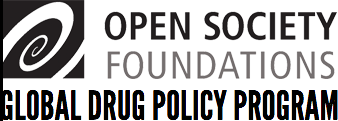A Day in the Life:
The World of Humans Who Use Drugs
"The film gives us an astonishingly intimate look at the lives,
tribulations and inspiring resilience of drug using human beings."
Gabor Maté M.D.
Watch the film
A Day in the Life:
The World of Humans Who Use Drugs
"The film gives us an astonishingly intimate look at the lives, tribulations and inspiring resilience of drug using human beings."
Gabor Maté M.D.

Understanding Addiction Through Personal Narratives in 'The World of Humans Who Use Drugs'
A Day in the Life – The World of Humans Who Use Drugs offers an astonishingly intimate look into the lives, tribulations, and inspiring resilience of drug-using individuals. By focusing on personal narratives, this film provides a profound understanding of addiction and challenges societal perceptions.
Personal Narratives as a Tool for Understanding Addiction
Personal narratives are powerful tools that offer insights into the complex world of addiction. They provide a voice to those often marginalized by society, allowing them to share their experiences, struggles, and triumphs. Through storytelling, we gain a deeper understanding of the factors that contribute to addiction, such as trauma, mental health issues, and socio-economic challenges.
In 'The World of Humans Who Use Drugs', personal stories reveal the multifaceted nature of addiction. These narratives show that addiction is not merely a choice but often a coping mechanism for deeper issues. By listening to these stories, viewers can develop empathy and compassion for those struggling with substance use disorders.
Furthermore, personal narratives challenge the stigma surrounding addiction. They highlight the humanity of drug users and remind us that they are more than their addiction. By sharing their stories, individuals reclaim their identity and agency, shifting the focus from their substance use to their lived experiences.
The Role of Storytelling in Humanizing Drug Users
Storytelling plays a crucial role in humanizing drug users by providing a platform for them to share their experiences authentically. It allows them to express their emotions, fears, and hopes without judgment or prejudice. Through storytelling, drug users can connect with others who may have similar experiences, fostering a sense of community and belonging.
In 'The World of Humans Who Use Drugs', storytelling is used as a means to break down barriers between drug users and society. By presenting raw and honest accounts of daily life, the film encourages viewers to see beyond stereotypes and recognize the individuality of each person. This humanization is essential in changing societal attitudes towards drug users and promoting more compassionate approaches to addiction.
Moreover, storytelling empowers drug users by giving them control over their narrative. It allows them to redefine themselves beyond their addiction and share stories of resilience and survival. This empowerment is crucial in challenging negative perceptions and promoting self-worth among individuals who use drugs.
Analyzing Personal Accounts: Insights into the Daily Struggles
Analyzing personal accounts provides valuable insights into the daily struggles faced by individuals who use drugs. These narratives shed light on the realities of living with addiction, including financial instability, health issues, and social isolation. By understanding these challenges, we can better support those affected by substance use disorders.
One common theme in personal accounts is the impact of poverty on addiction. Many individuals turn to drugs as a way to cope with economic hardships or escape from difficult living conditions. The lack of access to resources such as healthcare or education further exacerbates these struggles.
Another significant insight from personal narratives is the role of mental health in addiction. Many individuals use drugs as a form of self-medication for untreated mental health conditions such as depression or anxiety. These accounts highlight the need for integrated approaches that address both substance use disorders and mental health issues simultaneously.
| Challenge | Description |
|---|---|
| Financial Instability | Difficulty maintaining employment or housing |
| Health Issues | Chronic illnesses or complications from drug use |
| Social Isolation | Stigmatization leading to exclusion from community |
Resilience and Recovery: Stories of Hope and Survival
Despite the challenges faced by individuals who use drugs, many personal narratives are also stories of resilience and recovery. These accounts highlight the strength and determination required to overcome addiction and rebuild one's life.
Recovery is often portrayed as a journey rather than a destination in these stories. Individuals share their experiences with relapse, setbacks, and moments of doubt but emphasize their commitment to change. This perspective encourages others struggling with addiction by showing that recovery is possible despite obstacles.
Stories of hope also emphasize the importance of support systems in recovery journeys. Whether it's family members offering unconditional love or community organizations providing resources like counseling or job training programs—support networks play an integral role in helping individuals achieve lasting sobriety.
Furthermore; sharing success stories inspires others within communities affected by substance abuse—showing them what’s achievable when given proper support—and contributes positively towards breaking down stigmas associated with being labeled “an addict.”
Breaking Stereotypes: Diverse Experiences of Drug Users
Personal narratives challenge stereotypes about drug users by showcasing diverse experiences across different demographics—highlighting variations based on age groupings (youth vs older adults), gender identities (male/female/non-binary), cultural backgrounds (indigenous populations vs urban dwellers), etc., which helps dispel myths surrounding homogeneity among those affected by substance abuse issues!
By presenting varied perspectives within 'The World Of Humans Who Use Drugs,' audiences gain appreciation not only regarding individual differences but also understand how systemic factors contribute towards shaping unique paths taken during each person’s struggle against dependency—and ultimately triumph over adversity through sheer willpower combined alongside supportive environments!
Examples Of Diverse Experiences:
- Youth: Often face peer pressure alongside limited access toward educational opportunities leading them astray.
- Older Adults: May grapple more intensely against long-term dependencies developed throughout lifetime exposure.
- Cultural Backgrounds: Indigenous communities might experience higher rates due largely attributed historical traumas inflicted upon ancestors causing intergenerational cycles perpetuating substance abuse patterns today!
The Impact Of Societal Perceptions On Personal Narratives
Societal perceptions significantly influence how personal narratives are received—and subsequently interpreted—by wider audiences consuming content related specifically towards understanding complexities inherent within world inhabited predominantly among people utilizing illicit substances regularly...
Negative stereotypes perpetuated through media portrayals often result misrepresentations casting shadows over genuine efforts made trying convey authentic depictions showcasing realities faced daily basis...
However; when filmmakers like those behind 'A Day In The Life' choose focus instead uplifting voices previously silenced under weight prejudice—they help shift paradigms encouraging broader acceptance acknowledgment humanity present even amidst darkest circumstances imaginable!
Through careful curation selection process ensuring accuracy representation diverse array lived experiences captured screen—audiences exposed nuanced portrayals fostering empathy compassion ultimately leading toward greater societal acceptance comprehensive policy reform aimed addressing root causes underlying epidemic proportions witnessed globally today...
Using Personal Narratives To Inform Policy And Support Systems
Personal narratives serve invaluable resource informing policymakers tasked designing effective interventions addressing myriad challenges posed ongoing crisis surrounding widespread prevalence addictive behaviors observed worldwide...
By leveraging firsthand accounts shared courageously brave souls willing bare all public scrutiny—they provide crucial insights needed develop targeted strategies tailored meet specific needs identified throughout extensive research conducted field experts dedicated improving outcomes associated treating managing chronic relapsing condition commonly referred colloquially simply “addiction”...
These real-life testimonials underscore necessity adopting harm reduction models emphasizing prevention education alongside provision accessible treatment options designed promote long-term recovery sustainability rather punitive measures historically employed disproportionately affecting marginalized communities already facing significant barriers accessing healthcare services traditionally reserved privileged few...
Incorporating lived experience voices directly into policymaking processes ensures policies reflect true realities encountered ground level thereby increasing likelihood successful implementation resulting tangible improvements quality life enjoyed countless individuals families impacted devastating effects wrought unchecked substance abuse epidemics ravaging societies across globe today...


